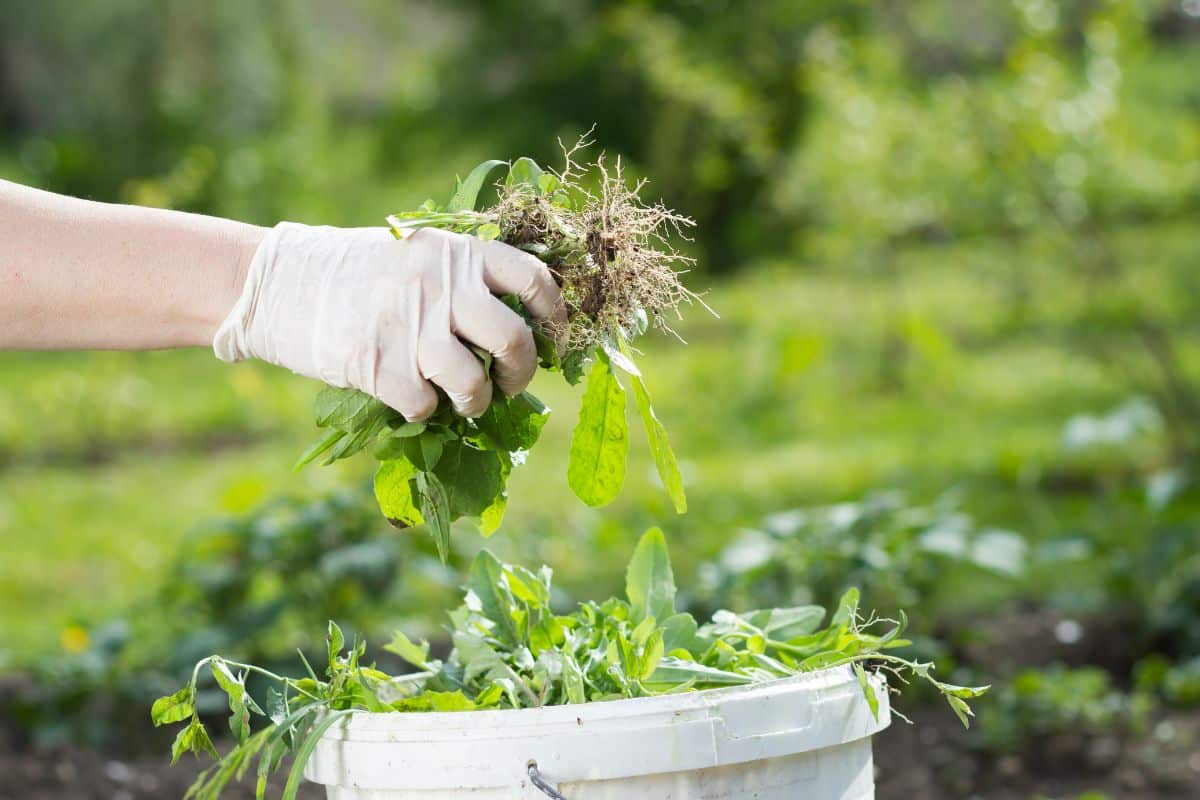Tired of battling stubborn weeds in your garden or patio ? Nature provides a powerful solution right in your kitchen cupboard. White vinegar serves as an excellent natural herbicide when combined with the right ingredients. This eco-friendly alternative eliminates unwanted plants without harsh chemicals, protecting both your garden ecosystem and your family’s health.
Supercharging vinegar with kitchen allies for weed control
White vinegar alone can tackle pesky weeds, but its effectiveness multiplies dramatically when paired with two common kitchen products. The acetic acid in vinegar works by drying out plant tissues, essentially dehydrating weeds to death. However, this natural weed killer becomes considerably more potent with strategic additions.
The first kitchen ally is dish soap. Adding just a few drops breaks down the waxy protective coating on weed leaves. This seemingly minor addition makes a significant difference by allowing the vinegar to penetrate plant tissues more effectively. The soap acts as a surfactant that helps the solution adhere to and penetrate weed surfaces rather than simply rolling off.
Table salt serves as the second powerful addition. When dissolved in the mixture, salt enhances the dehydrating effect by drawing moisture from plant tissues through osmosis. While extremely effective, use salt cautiously as it can impact soil fertility. This combination is particularly useful for areas like gravel driveways or between patio stones where you don’t want anything growing.
When managing persistent weeds in decorative areas, consider what plants might work well in other parts of your garden. For vine-growing areas, what are the best companion plants for grapevines can provide inspiration for creating balanced garden ecosystems that naturally suppress unwanted growth.
Creating your homemade weed-killing formula
Preparing this natural herbicide requires minimal effort and uses ingredients most households already have on hand. For best results, follow this simple recipe :
- Fill a spray bottle with one liter of water
- Add 20-30ml of white vinegar (about 2-3 tablespoons)
- Mix in a few drops of dish soap
- Optional : add one tablespoon of table salt (use cautiously)
- Shake thoroughly until all ingredients are well combined
The measurements don’t need to be exact, but ensure the salt fully dissolves before application. The beauty of this homemade solution lies in its simplicity and effectiveness against most common garden weeds. For particularly stubborn varieties, you might need to increase the vinegar concentration slightly.
Some invasive plants require specialized approaches. If dealing with particularly persistent species like how to get rid of lily of the valley, you might need multiple applications or complementary strategies alongside your vinegar solution.
Application techniques for maximum effectiveness
Timing and technique significantly impact this natural herbicide’s performance. Apply your mixture on sunny, dry days when no rain is forecast for at least 24-48 hours. The sun amplifies the solution’s effectiveness by accelerating the dehydration process. Morning application generally works best, giving the mixture ample daylight hours to work.
When spraying, thoroughly coat all plant surfaces—stems, leaves, and even the crown where possible. Focus particularly on the growing center of the plant to disrupt its ability to recover. For weeds with waxy leaves or hardy varieties, a second application after 2-3 days may be necessary.
This solution works most effectively on young weeds, so catch them early when possible. For mature weeds with established root systems, you might need several treatments spaced a few days apart. Persistent application ultimately overcomes even the most stubborn unwanted plants.
When managing lawn areas where pets roam, you might wonder is clover seed good to use where dogs pee ? Understanding pet-friendly ground covers can complement your weed management strategy while creating safe outdoor spaces.
Smart usage for different outdoor spaces
This vinegar solution works wonderfully in specific areas but requires thoughtful application depending on the location. Gravel driveways and walkways benefit tremendously from this treatment since these areas typically shouldn’t host any plant growth. Here, you can use the full formula with salt without concerns about soil health.
For patio stones and concrete cracks, the solution penetrates deeply to eliminate stubborn weeds growing in tight spaces. Apply directly to the target plants while avoiding overflow onto desired garden plants nearby. A small paintbrush can help with precise application in tight spaces.
Exercise caution when using near garden beds containing desirable plants. The solution doesn’t discriminate between wanted and unwanted vegetation, so careful application matters. For areas near valuable plants, consider using barriers like cardboard shields during application or opt for the salt-free version of the mixture.
While managing garden weeds, you might also wonder about edible properties of common houseplants. Many people ask can you eat a Swiss cheese plant ? Understanding what’s safe and what isn’t helps create healthier garden environments overall.
Environmental benefits of natural weed control
Choosing this kitchen-based weed killer over commercial chemical herbicides offers significant environmental advantages. Natural solutions protect beneficial soil microorganisms that chemical herbicides often destroy. These microorganisms play crucial roles in soil health and plant nutrition.
This homemade mixture also poses minimal risk to pollinators like bees and butterflies when used as directed. Since application targets specific weeds rather than broadcasting over large areas, beneficial insects remain largely unaffected by your weed control efforts.
Additionally, using household ingredients reduces packaging waste associated with commercial products. The environmental footprint shrinks further when considering the energy typically used in manufacturing, transporting, and disposing of commercial herbicide containers.
By combining white vinegar with common kitchen ingredients, you’ve created an effective, economical, and environmentally responsible approach to weed management. This solution empowers you to maintain beautiful outdoor spaces without compromising your commitment to natural gardening practices.

